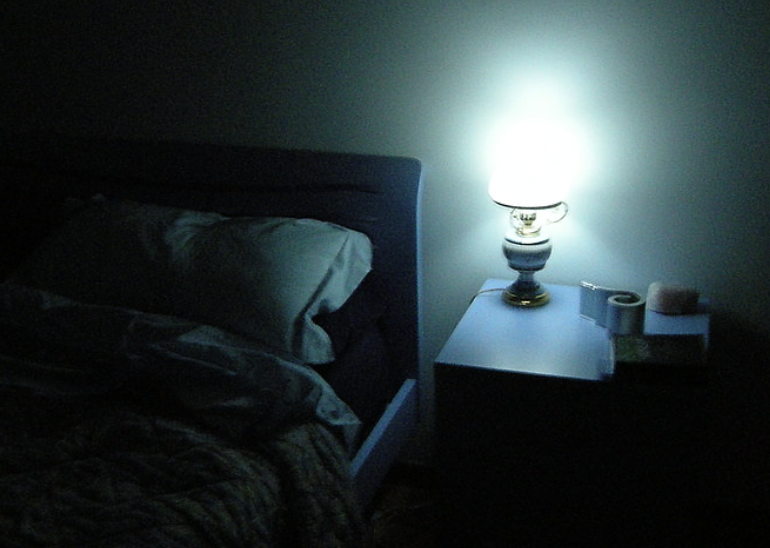THE GUARDIAN – Sleeping with the light on might scare away monsters under the bed, but it could be linked to an increased risk of heart disease and diabetes, research suggests.
Light is an important signal by which the body’s internal clock, which governs a host of biological processes from temperature to hormone release, is synchronised to the external cycle of day and night.
A number of studies have revealed, however, that keeping the lights on at night could be problematic.
Among them, research has suggested it is associated with obesity in women and type 2 diabetes among elderly people, while a recent study from researchers in the Netherlands suggested bright daytime lighting and low light at night could help people with pre-diabetes control their blood sugar levels.
Now researchers in the US say they have found that people who are exposed to artificial light at night show worse glucose and cardiovascular regulation compared with those who slumbered in the dark, something they suggest is down to the body being kept more alert.
“We found that light – even [a] modest amount – increases activation of the autonomic nervous system, which we postulate increased heart rate and decreased insulin sensitivity,” said Dr Phyllis Zee, co-author of the study from Northwestern University Feinberg School of Medicine.
Writing in the Proceedings of the National Academy of Sciences, Zee and colleagues report how they studied the glucose tolerance and heart rate of 20 people over two nights, 10 of whom spent both nights sleeping in dim light, while the other 10 spent one night in a room with dim light and the next night in a room with overhead lighting at around 100 lux, which is about equivalent to an overcast day.
The results suggest that while levels of melatonin – a sleep-promoting hormone produced by the body … READ MORE.



